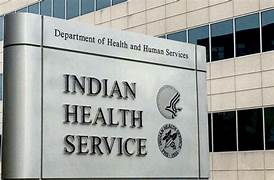The Indian Health Service (IHS) has allocated nearly $2 million through 10 new cooperative agreements to enhance care for individuals affected by Alzheimer’s disease and dementia in tribal and urban Indian health systems. With this latest funding, the agency’s total investment rises to over $5.9 million across three years, extending support to 16 communities. This announcement coincides with World Alzheimer’s Month and supports efforts to strengthen culturally rooted, community-driven models of care.

There has been significant growth in interest and demand for funding, with a five-fold increase in applications between 2022 and 2025. This trend highlights a rising awareness of Alzheimer’s and dementia within American Indian and Alaska Native communities, and underscores the urgency of early intervention as well as the positive impact of previous IHS-supported outreach and education initiatives.
The selected programs for this year stand out for their culturally relevant, sustainable approaches that focus on early detection, caregiver education, outreach, and coordinated care adapted to the unique needs of their communities. Among the recipients are four new awardees and six returning organizations:
-
Absentee Shawnee Tribe of Oklahoma – $200,000 will support a care model integrating Shawnee healing traditions with modern medical practices. Training for over 400 health workers will promote earlier diagnoses and reduced delays, setting an example for other tribes nationwide.
-
Central Oklahoma American Indian Health Council, Inc. – $200,000 will go toward developing a comprehensive dementia care program with new screening tools, team-based assessments, and partnerships, aiming to set a new standard for care within tribal communities.
-
Cherokee Nation – $200,000 will be used to broaden dementia care services, including early detection, diagnosis, coordinated management, and caregiver support. New staff roles, such as patient navigators and nurse case managers, will help guide families and improve care outcomes.
-
Chickahominy Indian Tribe (Virginia) – With $168,030, the Weaving Pathways of Care initiative will launch with the addition of a brain health navigator and a new case management system to improve awareness, access to services, and overall care coordination.
-
Confederated Tribes of Grand Ronde Community of Oregon – A $198,603 grant will help expand dementia services across six counties through culturally tailored care plans, in-home screenings, wellness education, and a caregiver mentorship program.
-
Denver Indian Health and Family Services (Colorado) – The $200,000 award will support Colorado’s only urban Indian health program in enhancing awareness, training staff in advanced care, and expanding early detection initiatives to better support families.
-
Fallon Paiute Shoshone Tribe (Nevada) – With $184,996, the tribe will implement a project guided by a Dementia Care Steering Committee. It includes community screenings, caregiver support, home safety assessments, and improvements in care documentation and planning.
-
First Nations Community Health Source (New Mexico) – A $200,000 investment will support a three-year initiative offering memory screenings, culturally adapted workshops, outreach efforts, and case management to connect families with vital social services.
-
Norton Sound Health Corporation (Alaska) – Receiving $200,000, the organization will enhance care across the Bering Straits through additional screenings, educational outreach, earlier diagnosis, and expanded support services, including respite care.
-
Seattle Indian Health Board (Washington) – This $200,000 award supports a dementia care initiative that integrates traditional Indigenous knowledge with clinical care. The program focuses on early screening, caregiver support, and improved care coordination, while sharing outcomes with broader networks.
These awards contribute to the U.S. Department of Health and Human Services’ National Plan to Address Alzheimer’s Disease, with goals of improving care quality, enhancing support for families and caregivers, and increasing public awareness of the disease and related dementias.
Given the increasing need for accurate diagnoses and culturally appropriate care, particularly in tribal and urban Indian settings, these initiatives reflect a collaborative effort to ensure individuals with dementia and their families receive compassionate, community-informed care.
In addition to funding programs, IHS continues to develop tools that support care providers. In September, it released the Dementia Care Pathway—a clinical resource tailored to assist health professionals in delivering timely, person-centered, and culturally appropriate dementia care across IHS, tribal, and urban Indian health settings.
More Stories Like This
Johns Hopkins Collecting Tribal Success Stories from $1.5B Opioid SettlementArizona MMIP Task Force Holds Listening Session for Survivors and Families
‘A good stew is a story’ Blackfeet buffalo rancher shares Three Sisters Buffalo Stew recipe
National Indian Health Board Urges Congress to Extend Enhanced Premium Tax Credits
$1.25 Million Grant Gives Hope to Tolowa Dee-ni' Nation Amid Housing Crisis


